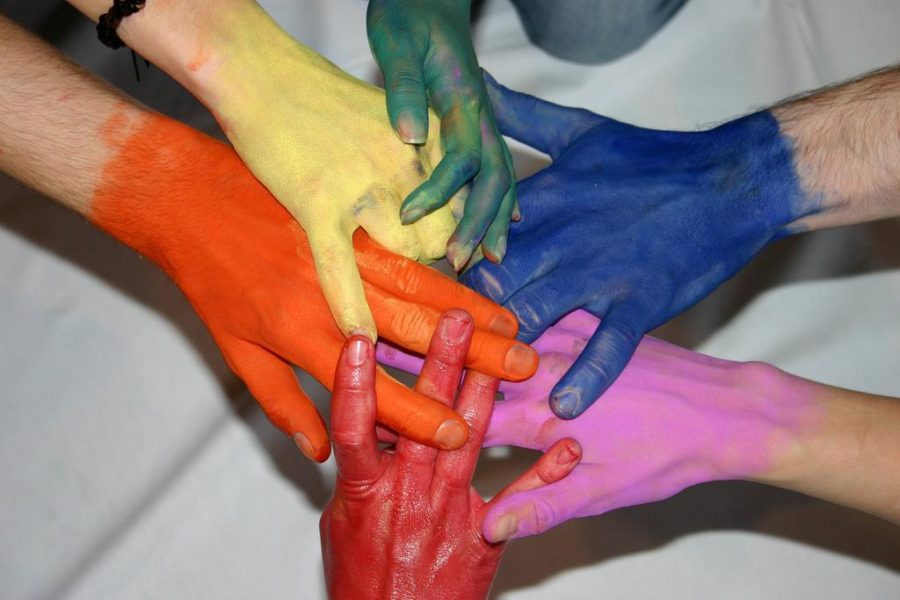It hit me around tenth grade while I was reminiscing about my junior high school days and suddenly realized that the girl I used to stare at during choir class had been a little more interesting to me than just a distraction: she had been a crush. I would sit there and pay way more attention to the way her hair fell than the music I was supposed to be reading. But, of course, we never actually talked.
I won’t lie, it was an awkward and difficult process trying to figure it all out. I liked boys, didn’t I? Since I liked boys, girls were out of the question, right? I couldn’t possibly like both at once.
At first, I tried to convince myself that it was just because I wanted some female friends. Then I tried to persuade myself that I was just curious about girls. Eventually, I gave in.
It took me a long time to come out. I was scared of being judged or ridiculed, not accepted by my peers. I came out to everyone else just a year and a half ago via a Facebook post. Since then, I’ve become much more comfortable in my identity and a lot more open about it. I don’t feel like I have to hide it. I’m not embarrassed by who I am.
I want to acknowledge that, in many ways, my experience has likely been much easier than for many others. I have white privilege. I grew up in an upper-middle-class household. I’m cis-gendered. If I don’t explicitly say I’m LGBT+, people probably won’t suspect. I’ve been welcomed and encouraged by the most important people in my life. Luckily for me, people in my life were very supportive. My family has been very open, my church is accepting and friends have encouraged and loved me regardless. This isn’t always a reality for people in the LGBT+ community.
A little more about me: 99 percent of the time I express myself in a very feminine way with lipsticks and flower crowns and short skirts. I’ve never actually dated a woman, let alone had sex with one. All of my past relationships have been with men. I don’t identify with a labeled orientation and tell people I’m bisexual mainly to avoid getting caught in a long conversation about what my identity means.
There’s an odd stigma surrounding people similar to me – people who don’t fit into binary sexual or romantic orientations. It confuses people. For some, even within the LGBT+ community, we aren’t seen as real or legitimate. Maybe we just haven’t picked a side yet. Maybe we are just looking for attention, looking for something to say that makes us quirky and unique. When I date a man, I automatically become “straight” in people’s eyes. My identity is erased simply because of which gender my partner happens to be.
I made out with a woman once. I don’t know if that helps. I’ve been on a few Tinder dates with women. Does that count for something? How do I fit into my community? How queer do I have to be to be queer?
Am I queer enough?
letters@dailyutahchronicle.com


